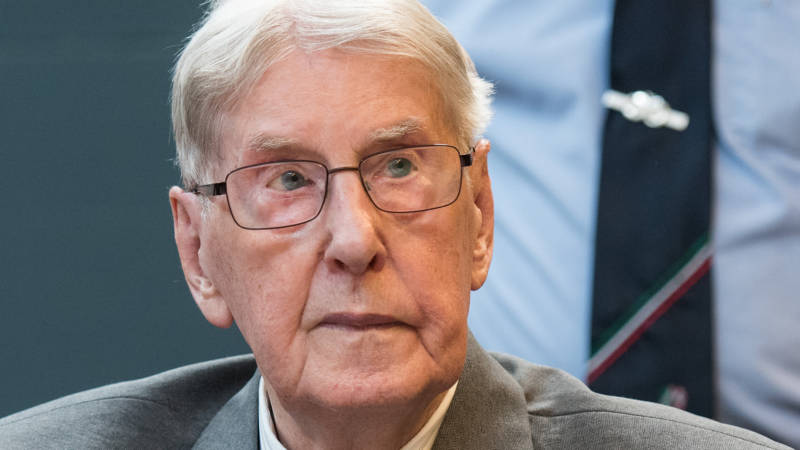Since the Nuremberg Trials, the United States has often been at the forefront of holding war criminals accountable and fighting genocide. But some critics wonder whether the war on terror has undermined America’s moral authority. A new book, “Hiding in Plain Sight,” examines that tension as it traces the dramatic pursuit of fugitive war criminals from World War II to the present day. We talk to two of the book’s authors.
Prosecuting War Criminals in the Era of the War on Terror
51:27

Former SS officer Reinhold Hanning sits at a court in Detmold, western Germany, on June 17, 2016, during the last day of his trial in what is expected to be one of the last Holocaust trials.
More than 70 years after World War II, Hanning was sentenced to five years' imprisonment over his role at the camp in Nazi-occupied Poland. (Photo: Bernd Thissen/AFP/Getty Images)
Guests:
Eric Stover, faculty director of the Human Rights Center, UC Berkeley, School of Law
Alexa Koenig, executive director, UC Berkeley's Human Rights Center; Lecturer-in-Residence, UC Berkeley School of Law
Allan Ryan, former director, Office of Special Investigations, Criminal Division of the U.S. Justice Department
Sponsored